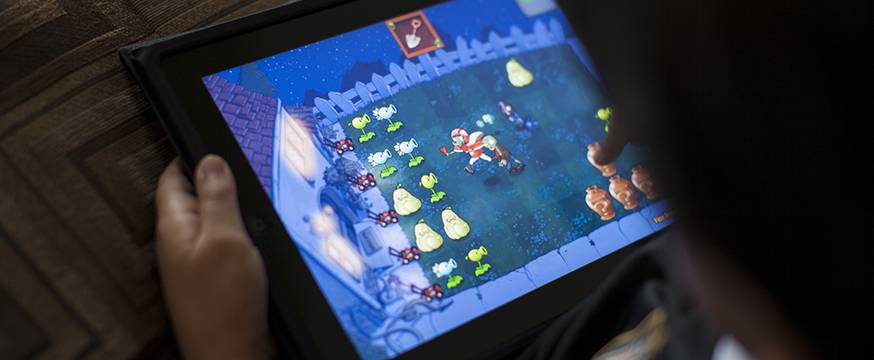
Addressing educational disadvantage
Research 8 Sep 2014 5 minute readThree projects supported by the ACER Foundation are developing actionable ideas to address educational disadvantage, as Deirdre Jackson explains.
The ACER Foundation was established in 2013 as a vehicle for forming partnerships between ACER and other charitable organisations in order to undertake discretionary research and development to improve learning. In 2014 the ACER Foundation introduced the Innovation Fellowship – a new initiative to support ACER staff to develop solutions based on ideas that address educational disadvantage in the community.
Following a call for submissions, three projects have been selected as the recipients of the inaugural Innovation Fellowships. The projects address the development of an educational app for Aboriginal early learners in Western Australia; the development of a best-practice teaching and learning model for refugee students, particularly students from Africa; and developing a mentoring program for Aboriginal and Torres Strait Islander education researchers and research assistants.
The development of an educational app for Aboriginal early learners is tailored specifically to meet the needs of disadvantaged Indigenous pre-schoolers, particularly those who speak English as a second language, in the Broome, Fitzroy Crossing and Halls Creek belt in the Kimberley region of WA. The project is being undertaken by Dr Sacha DeVelle, with support from Tony Dreise and Danielle Anzai.
Development of the app is being informed by Dr DeVelle’s experience over many years working in developing contexts in Latin America and sub-Saharan Africa as well as her experience in the development and launch of the first educational mobile phone project in Uganda.
“The current work addresses a top priority issue for the WA Minister for Education and Aboriginal Affairs, Peter Collier, namely early intervention tools in literacy and numeracy for Aboriginal three- and four-year olds living in remote areas of the state,” Dr DeVelle said.
Research by Paul Hughes, Arthur More and Mark Williams reported in Aboriginal Ways of Learning shows that Indigenous learners have specific, as well as universal, learning styles. The educational app under development addresses specific and universal aspects of Indigenous learning by embedding learning experiences within storytelling, community and cultural contexts. The app measures literacy and numeracy skills, and will also include a creativity measure that examines how three- and four-year-old Aboriginal children respond to simple and abstract tasks within authentic, cultural contexts.
A new mentoring project to match Aboriginal and Torres Strait Islander education researchers and research assistants with ACER researchers, is being established by Kathryn Moyle, Tony Dreise, Gina Milgate and Kelly-Ann James. The team is also developing a research methods training program and maintaining a database of participants following calls for expressions of interest from Aboriginal and Torres Strait Islander education researchers and research assistants.
‘ACER recognises the fundamental importance of Indigenous involvement and empowerment in educational research. Our project aims to increase capability in the area of Indigenous research, by supporting Indigenous researchers and research assistants, but just as importantly by increasing the knowledge and skills of non-Indigenous education researchers as partners in Indigenous research,’ said Mr Dreise.
‘In developing and implementing a research methods training program we are looking to establish a pool of Indigenous educational researchers and create a guide to support Indigenous researchers and research assistants on the collection and analysis of data. We're looking to support Indigenous educators who might be interested in early career educational research opportunities through a mentoring program with support from established researchers and mentors at ACER.’
Mary Kimani’s best-practice teaching and learning model for refugee students, particularly students from Africa, aims to support those who have suffered severely interrupted schooling or have little or no experience of school. ‘The combined effects of low or no literacy in a first or a second language, little or no schooling and trauma mean the process of settling into schooling and learning can be challenging for refugee students,’ Dr Kimani said.
Research indicates there is a lack of appropriate educational and other specialised support targeted to assist the acculturation, integration and school success of refugees. ‘To address that, and the varying cultural and educational needs of refugees from different parts of Africa, we are identifying African refugee students’ schooling experiences, needs and barriers, and the lessons we can learn from these in order to build support systems for students,’ Dr Kimani said. ‘We are anticipating that the model will include mentoring of African refugee high school students by African refugee university students.’
By focusing on practical innovations supported by research evidence, the Innovation Fellowship projects aim to make a real difference for those most educationally disadvantaged in our community.
Further information:
Indigenous educators, early career researchers and community leaders interested in participating in the Indigenous Visiting Fellow Development Program are encouraged to contact Gina Milgate, ACER Research Fellow (Indigenous Education), on telephone +61 3 9277 5417 or via email.
Further information about ACER Foundation projects is available at < www.acer.edu.au/foundation >
